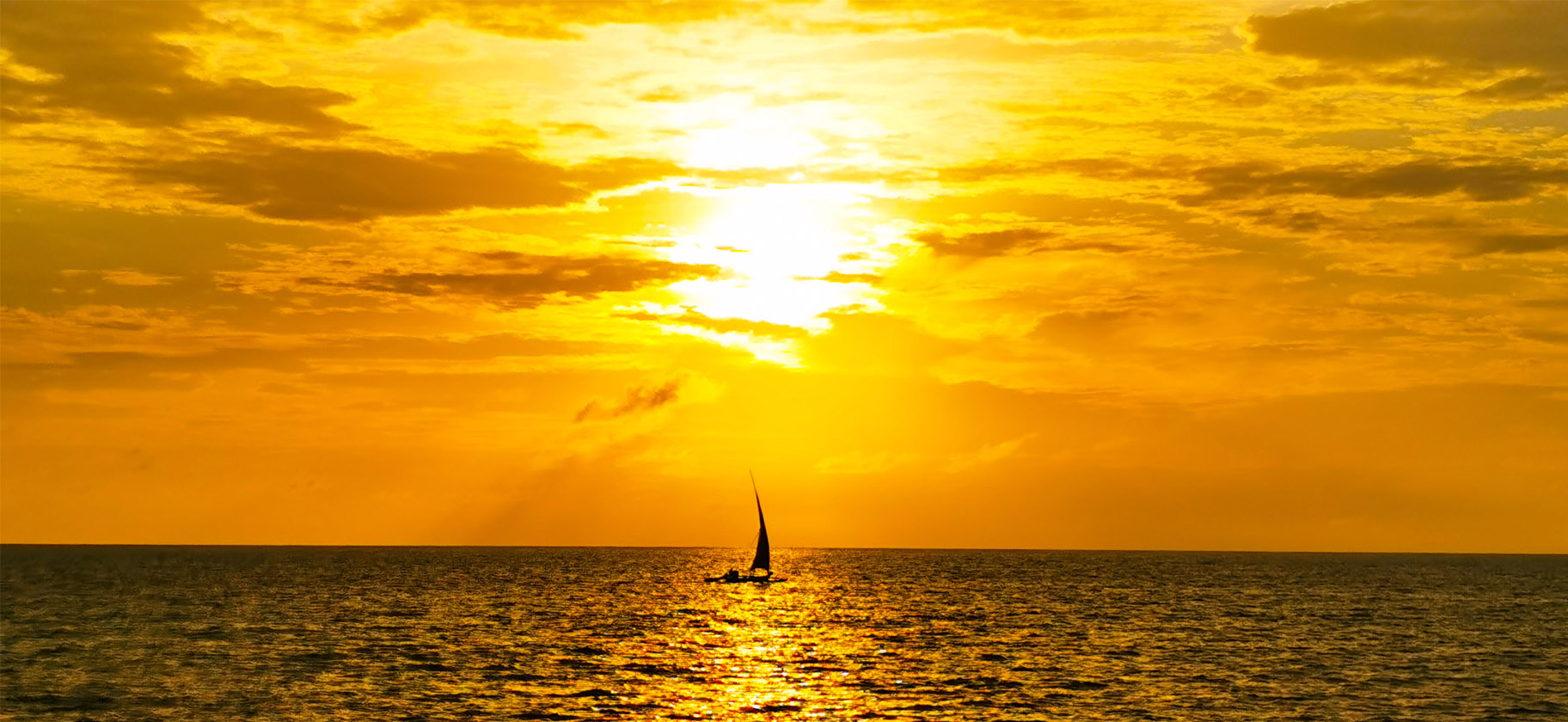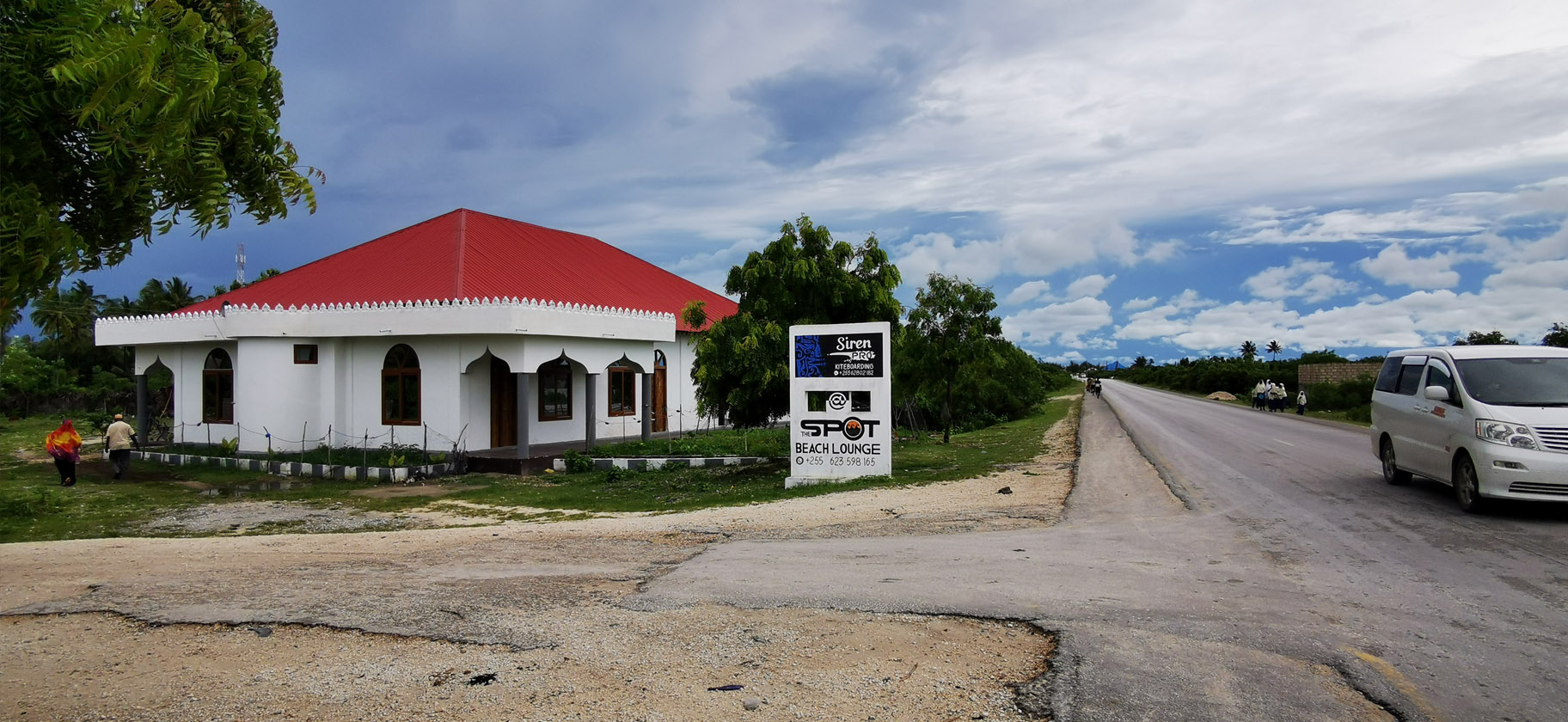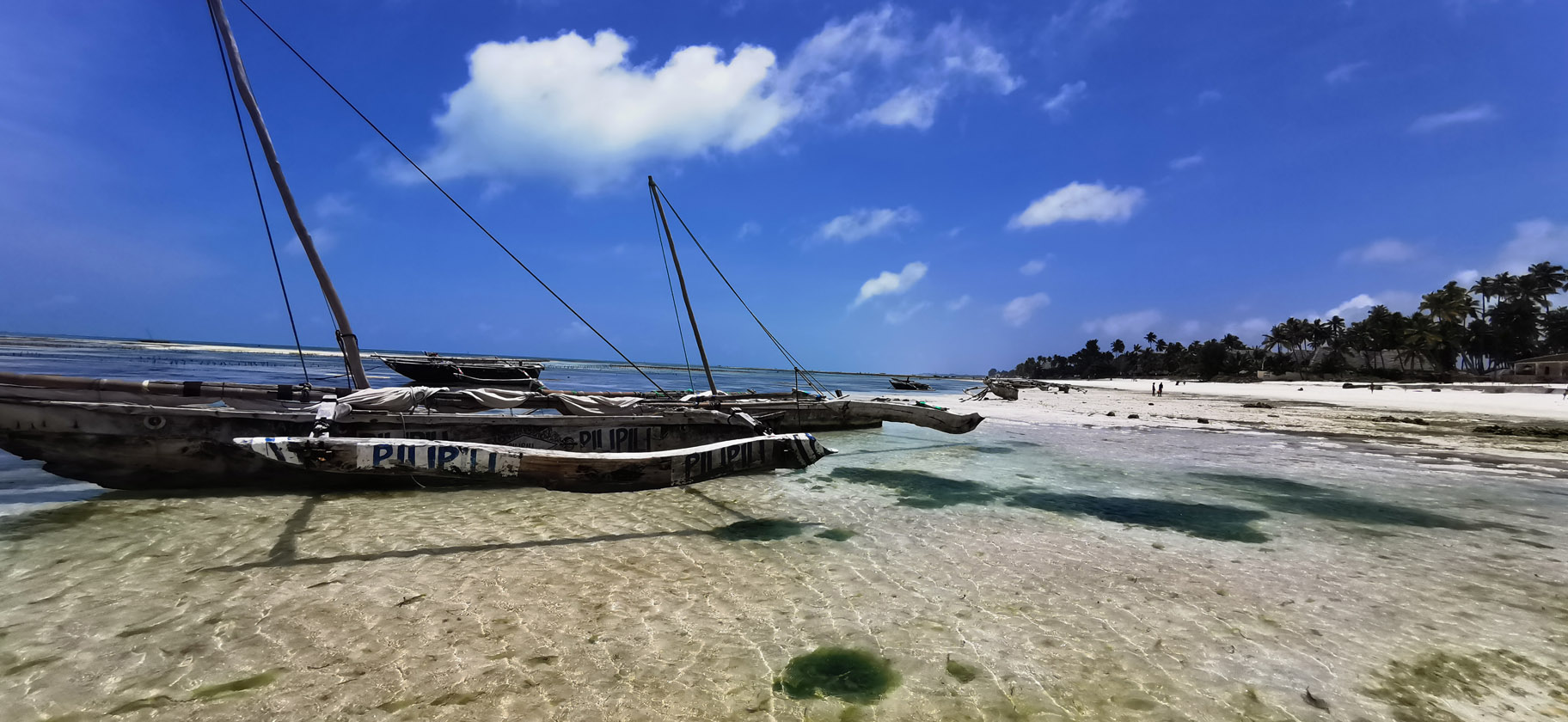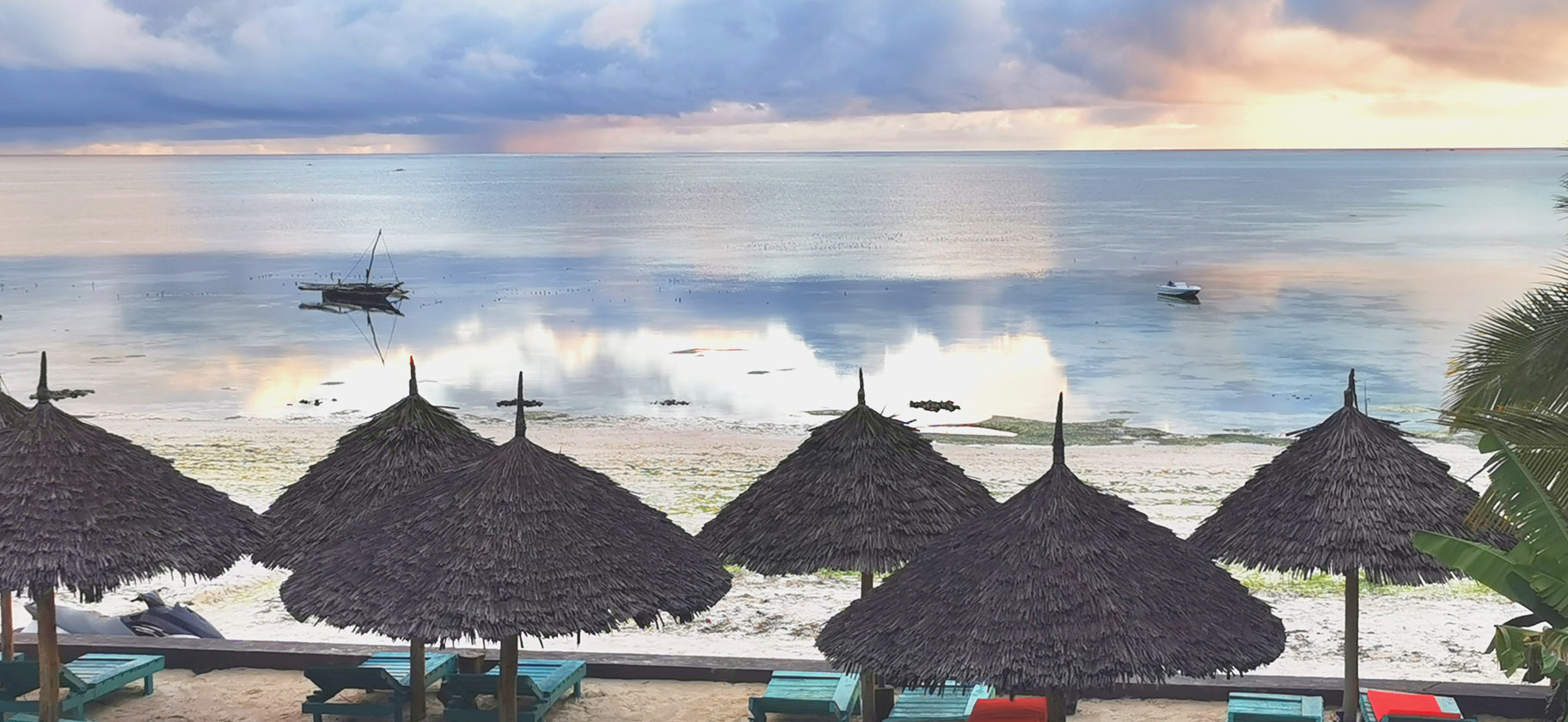The Highway, the Beach, and the Road

Zanzibar had been described to me by more than one person as ‘Paradise’; an island of beautiful sandy beaches, sublime scenery, a rich history, and exotic spices. But unlike in Arusha or Dar es Salaam where I could remain relatively anonymous if I tried, in Stonetown there was an endless parade of touts and hawkers seeking my attention. I could not walk more than ten metres before being harassed (or helped, depending on your perspective) by someone in the street wanting me to see their shop, use their taxi, or show me around, which would have been fine had I been seeking souvenirs, a taxi, or someone to show me around. After a week on safari and being tossed around in a land cruiser on a dusty road, all I wanted was to be somewhere calm and peaceful. I was seeking an idyllic beach experience and Stonetown was anything but calm, peaceful, or idyllic.
By the time I arrived in Jambiani I was a broken shell. Every accommodation seemed to ask a lot but offered very little. My shirt was soaked through with perspiration and clinging to my skin from the humidity. With overnight temperatures in the high 20s, how people were able to cope without air conditioning was anyone’s guess. With the safari experience complete, my business needed attending to so I was also on the lookout for decent internet speeds which, unlike on the mainland, I never found in all of my time on the island. The beach, as I would later discover, underwent massive tidal shifts where during the evening the waves would crash right up against the lodges that lined the beach and whose walls acted as dykes but during the day the ocean would recede out for several kilometres leaving nothing but a series of ankle-deep puddles. It meant that the ocean and the beach were useless save for going for a stroll or for sunning although being outside in the sun during the day was painful. With temperatures routinely reaching the high thirties with high humidity, it meant that within moments of stepping out of the shade sweat would begin to drip from every part of the body. It was common to see locals carrying a cloth around with them for the sole purpose of wiping away perspiration from their eyes and faces. The heat was downright debilitating and it became clear to me that everyone has their own idea of paradise and that this certainly was not mine. The idea of an idyllic beach experience rapidly evaporated and my perspective shifted.
 There is a tarmac highway that runs the length of the coastline a couple of hundred meters inland from the ocean, with pullouts leading to every beach along the way. From Nungwi in the north all the way to the southern tip of the island, the highway is designed to ferry tourists to the various beaches along the coast. The beach is where all of the hotels, bungalows, and restaurants are located. This is where the tourists stay and the touts and hawkers know it so having a quiet stroll along the beach is a luxury no visitor is afforded. Assuming the tide had been up and the sand was cool enough to actually walk on, during a walk along a 100-metre stretch of beach I would be offered everything from boat rides and snorkelling tours to hashish – none of which I was all that interested in. The only space that was left was the dirt road that led through the various townships. It was either dry and dusty or flooded from the rain that fell during the night. Mothers sat out on the stoops in front of decrepit monolithic concrete houses nursing their newborns; men hung out near the shops or hauled around various materials from project site to project site but, in the heat, nothing moved quickly. Teenagers played football on a dusty open plot of land and school children ran about playing tag between the buildings or digging up critters in the forest where the road did not run. The road was where local life happened and the beach seemed a world apart from it. The lines that separated the haves and the have-nots were not exactly blurred in Zanzibar. If you were white you visited and stayed by the beach, if you were black you lived by the road. There was nothing but traffic passing through on the highway, petty annoyances for me on the beach, and a heartrending situation on the road. How could this be paradise?
There is a tarmac highway that runs the length of the coastline a couple of hundred meters inland from the ocean, with pullouts leading to every beach along the way. From Nungwi in the north all the way to the southern tip of the island, the highway is designed to ferry tourists to the various beaches along the coast. The beach is where all of the hotels, bungalows, and restaurants are located. This is where the tourists stay and the touts and hawkers know it so having a quiet stroll along the beach is a luxury no visitor is afforded. Assuming the tide had been up and the sand was cool enough to actually walk on, during a walk along a 100-metre stretch of beach I would be offered everything from boat rides and snorkelling tours to hashish – none of which I was all that interested in. The only space that was left was the dirt road that led through the various townships. It was either dry and dusty or flooded from the rain that fell during the night. Mothers sat out on the stoops in front of decrepit monolithic concrete houses nursing their newborns; men hung out near the shops or hauled around various materials from project site to project site but, in the heat, nothing moved quickly. Teenagers played football on a dusty open plot of land and school children ran about playing tag between the buildings or digging up critters in the forest where the road did not run. The road was where local life happened and the beach seemed a world apart from it. The lines that separated the haves and the have-nots were not exactly blurred in Zanzibar. If you were white you visited and stayed by the beach, if you were black you lived by the road. There was nothing but traffic passing through on the highway, petty annoyances for me on the beach, and a heartrending situation on the road. How could this be paradise?
 There was another way to look at the situation. Zanzibar is an escape and most people are not looking for reliable internet speeds because they are not there expecting to do even a minute of work – they are on vacation. So what do you do to break up the monotony of a day with nothing to accomplish? Plan an activity. And all you would need to do was head to the beach. I am a quiet guy who likes to be in bed early because I am going to be spending most of the day working. But when you are on vacation what do you do at night? Party. And all you would need to do was head to the beach. What helps you party? Drugs. Just go to the beach. Zanzibar, for all its failings, is a place where you can get whatever you want for your vacation and it is undeniably Instagrammable, but paradise it is not. What it is, is a place that is happy to cater to the wishes of its visitors and walking the beach you learn quite quickly what a lot of people’s ideas of paradise actually is.
There was another way to look at the situation. Zanzibar is an escape and most people are not looking for reliable internet speeds because they are not there expecting to do even a minute of work – they are on vacation. So what do you do to break up the monotony of a day with nothing to accomplish? Plan an activity. And all you would need to do was head to the beach. I am a quiet guy who likes to be in bed early because I am going to be spending most of the day working. But when you are on vacation what do you do at night? Party. And all you would need to do was head to the beach. What helps you party? Drugs. Just go to the beach. Zanzibar, for all its failings, is a place where you can get whatever you want for your vacation and it is undeniably Instagrammable, but paradise it is not. What it is, is a place that is happy to cater to the wishes of its visitors and walking the beach you learn quite quickly what a lot of people’s ideas of paradise actually is.
If I was out, I spent my time on the road. Being white and with my big bushy beard I stood out. The women would giggle as I walked past, the men looked at me and stroked their own chins and gave me a thumbs-up as a sign of respect for how thick my beard had become. The children with bits of food on their faces and mud up to their knees waved at me and would cry out, “Jambo!”. On one particular occasion, two girls said, “Jambo” to which I responded in kind when one of them suddenly said to me, “pen!” and put out her hand. I was flummoxed. It had become such an automatic response for me to recoil whenever someone wanted something from me, but this girl could not have been more than 12 years old – what could she possibly want from me other than a pen? When it finally registered in my brain, I thought to myself that I would have no problem handing over a pen to this young girl who could probably make genuine good use of it but, at that moment, I was without a pen to give her.
“I don’t have one,” I responded.
“Supermarket,” she persisted.
For some reason, that one simple request seemed a bridge too far and all I could respond with was “I’m sorry” and I walked on. If I could go back, I would say: “Come with me and let’s get you a pen”. Instead, I walked down the road in quiet reflection as children came popping up around each corner saying, “Jambo!” I thought of my apartment in downtown Vancouver and the trips I would make to the cinema down the road or the mega-mansions in Point Grey overlooking the inlet. I thought of the highways full of cars heading out to the suburbs where there were playdates and recreational leagues. I thought of the wellness centres and the Aberdeen Mall. I thought of my room full of guitars and a giant television and my kitchen stocked full of appliances I did not even know how to use. And here I could not give this girl, who could probably scarcely dream of such luxuries, a simple pen. I felt like a chump.
I walked to a local market and bought an entire box of fifty pens. I returned to my hotel and asked for fifty sheets of blank paper. They asked why and I explained that I would give them out to the children. The manager, an Italian named Ernesto, just laughed but he thought it was a sweet idea and obliged.
It had just rained and there were not many children out playing. I walked a good half kilometre before the first child waved at me and said, “Jambo!”. I waved hello, said ‘Jambo’, and motioned for him to come over. With a cautious and quizzical look on his face, the young boy approached as I reached into my bag and grabbed a pen and a single sheet of paper and handed them to him. His eyes grew wide and he grabbed them and went sprinting off back to the small homes that line the road. Within a few seconds, two other children came sprinting around the corner from where he had darted off to screaming, “Jambo! Jambo!”. I reached back into my bag with a smile and pulled out a pen and a sheet of paper for each of them.

For about half an hour this was how it went and it warmed me up inside. The children seemed genuinely grateful and I felt like what I was doing might make a difference, however small that difference might be. But I was simply glistening in my deluded sense of self-righteousness. The village will tell stories about me, I thought to myself. For the first time in Zanzibar, though, I had a genuine smile on my face and a spring in my step.
I had cleared out about half of the stash of pens and paper and travelled about 3 kilometres down the road when I decided to turn around and start making my way back to the hotel where I was staying. Suddenly a young boy cried out, “Jambo!” from behind two local buses. I waved, yelled out ‘Jambo!’ and pulled out a pen and a sheet of paper for him. He came rushing over and when I looked up I noticed that a local school had just let out its students for the day. A mass of more than a hundred children came sprinting over to me with their hands held out, all of them screaming at the top of their lungs, and the ones closest to me pulling at my clothes. I was in shock. All of this madness for a pen and a sheet of paper. Or, were they just desperate to be in on the act of getting something for free? The kids were in such a wild frenzy that they trampled over one another and some of the older boys were not afraid to use their arms to muscle themselves closer to me in that narrow corridor between the buses. I picked up one girl who had fallen over and had a half dozen kids fall on her. She had tears streaming along her cheeks and I shoved a pen into her hands and put her down outside the crowd in a safe spot. Part of me wanted to just run away from this madness and not leave them with anything or just throw what I had left into the air and let them tear each other apart for the spoils. Instead, I scanned the crowd for the kids who were quiet and made the least fuss. I would wend my way through the crowd and stuff the item – a pen or a sheet of paper – into their hands and see them off. When I had gotten rid of the last of my stash I threw my hands into the air and said I was sorry but that I had nothing left to give.
It was a mess of my own making. It was a well-intentioned gesture and I was only trying to do a nice thing for a few kids that I saw as disadvantaged. But the supposed disadvantage that I saw is a much more complicated issue than just a man from Canada inserting himself and his privilege into this tiny village. I learned that in trying to be the best of humanity you could unwittingly draw out its worst. I was ashamed. They would not tell stories about me. I had done nothing but briefly flare up the tension and chaos that always simmers beneath the surface in this part of the world. My ideas needed to be redrawn and my pretensions needed to be readdressed. I was not in Kansas anymore.
When I returned to my hotel Ernesto saw me walk in and asked me how it went. With a lump in my throat and all the honesty I could muster, I explained that things had not gone as I had planned. He laughed and said words that will live me forever: “you know, they don’t have much but they don’t really need anything either”.
